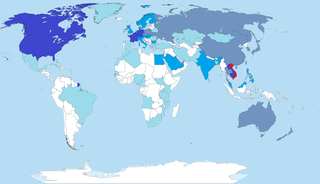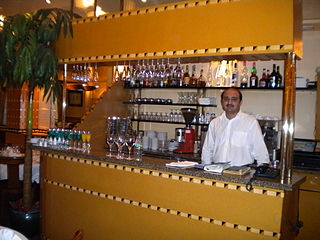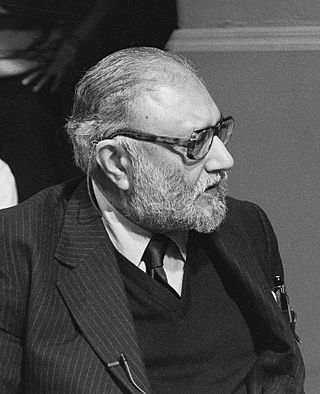Related Research Articles

Overseas Vietnamese are Vietnamese people who live outside Vietnam. There are approximately 5 million overseas Vietnamese, the largest community of whom live in the United States.

Pakistani Americans are citizens of the United States who have full or partial ancestry from Pakistan, or more simply, Pakistanis in America. They can be from different ethnic groups in Pakistan like Punjabi or Muhajir. The term may also refer to people who also hold a dual Pakistani and U.S. citizenship. Educational attainment level and household income are much higher in the Pakistani-American diaspora compared to the U.S. population at large. In 2019, there were an estimated 554,202 self-identified Pakistani Americans, representing about 0.187% of the U.S. population, and about 2.50% of Asian Americans; more specifically, around 8% of South Asian Americans.

Information and Communications University (ICU), established in 1998, was a Korean university focused primarily on research and engineering in the field of information technology. It was located in the city of Daejeon and comprised an engineering school and a management school. As of 2006, about 20% of the enrolled graduate students were international students. Unlike other Korean universities, almost all courses were taught in English.
There are a large number of expatriates inKuwait, with most residing in the capital of Kuwait City. Expatriates are primarily attracted by the employment opportunities in Kuwait. Foreign nationals account for nearly 70% of Kuwait's total population.

Pakistan studies curriculum is the name of a curriculum of academic research and study that encompasses the culture, demographics, geography, history, International Relations and politics of Pakistan. The subject is widely researched in and outside the country, though outside Pakistan it is typically part of a broader South Asian studies or some other wider field. Several universities in Pakistan have departments and research centers dedicated to the subject, whereas many independent research institutes carry out multidisciplinary research on Pakistan Studies. There are also a number of international organizations that are engaged in collaborative teaching, research, and exchange activities on the subject.
Koreans in Vietnam form an unrecognized minority group in Vietnam.

Filipinos in South Korea have a history dating back to the establishment of South Korea. Many live in Seoul, where they gather in the Hyehwa-dong and Dongsung-dong areas of Jongno-gu.

Koreans in Indonesia numbered 78,676 individuals as of 2018, making them the 13th-largest population of overseas Koreans, according to South Korea's Ministry of Foreign Affairs. The number has increased significantly from the previous record, which was around 50,000 people.
Koreans in the United Kingdom include Korean-born migrants to the United Kingdom and their British-born descendants tracing ancestries from North Korea and South Korea.

Overseas Pakistanis, or the Pakistani diaspora, refer to Pakistanis who live outside of Pakistan. These include citizens who have migrated to another country as well as people born abroad of Pakistani descent. According to a December 2017 estimate by the Ministry of Overseas Pakistanis and Human Resource Development, approximately 8.8 million Pakistanis live abroad. Data released in 2023 by the Ministry of Emigration and Overseas Employment states that more than 10.80 million people have moved abroad since 1990.
Scholarships in Korea are assistance programs aimed at helping students in or from South Korea pursue their education. Scholarships come in different forms based on factors such as the duration of study and the applicant's academic qualifications. They have various root aims, including recognizing academic achievement, promoting research and knowledge in specific fields, promoting global academic exchange, and reducing the financial burden on individuals.
Koreans in Poland do not form a very large population. They consist of both North and South Koreans.

Pakistanis in France, primarily of Punjabi origin from Punjab and Azad Kashmir. Large-scale Pakistani migration to France began in the 1970s; they clustered around the Rue du Faubourg-Saint-Denis in the 10th arrondissement of Paris, where many set up grocery stores and restaurants.

Pakistanis in Malaysia form the largest Pakistani diaspora community in southeast Asia and they also make up the 6th largest group of foreign workers/nationals in Malaysia as of 30 June 2017 according to the Malaysia's home ministry.

Science and technology have been pivotal in Pakistan's development since its inception. The country boasts a large pool of scientists, engineers, doctors, and technicians actively contributing to these fields.

Pakistani Canadian refers to the community in Canada of Pakistani heritage or descent. It can also refer to people who hold dual Pakistani and Canadian citizenship. Categorically, Pakistani Canadians comprise a subgroup of South Asian Canadians which is a further subgroup of Asian Canadians.

Filipinos in Pakistan consist of migrants from the Philippines. In 2008, there were an estimated 1,500 Filipinos in Pakistan according to the statistics of the Philippine government. Many Filipinos came to Pakistan for work and those who later married Pakistani men are now holding Pakistani citizenship. Pakistan comparatively has experience good immigration rate from Philippines despite security issues.
There are small number of resident Koreans in the Czech Republic, primarily citizens of South Korea.

Pakistanis are the citizens and nationals of the Islamic Republic of Pakistan. Pakistan is the fifth-most populous country, with a population of over 241.5 million, having the second-largest Muslim population as of 2023. As much as 90% of the population follows Sunni Islam. A majority of around 97% of Pakistanis are Muslims. The majority of Pakistanis natively speak languages belonging to the Indo-Iranic family.
Racism in South Korea comprises negative attitudes and views on race or ethnicity which are related to each other, are held by various people and groups in South Korea, and have been reflected in discriminatory laws, practices and actions at various times in the history of South Korea against racial or ethnic groups. It has been recognized as a widespread social problem in the country. South Korea lacks an anti-discrimination law, which was recommended by the UN Human Rights Committee in 2015. The law has been reported stalled due to "lack of public consensus".
References
- ↑ Yearbook 2004-05, Government of Pakistan, Ministry of Labour, Manpower & Overseas Pakistanis, (Overseas Pakistanis Division), Islamabad Archived 2010-05-24 at the Wayback Machine
- ↑ 체류외국인 국적별 현황, 2009년도 출입국통계연보, South Korea: Ministry of Justice, 2009, p. 262, retrieved 2011-03-21
- ↑ Chairperson Shehnaz Wazir Foreign marriages in South Korea Archived 2011-06-27 at the Wayback Machine
- ↑ Foreign marriages in South Korea
- ↑ Racism and stereotypes in South Korea Archived 2014-07-14 at the Wayback Machine
- ↑ "Korea's Muslims Mark Ramadan". The Chosun Ilbo. September 11, 2008. Retrieved 2008-10-09.